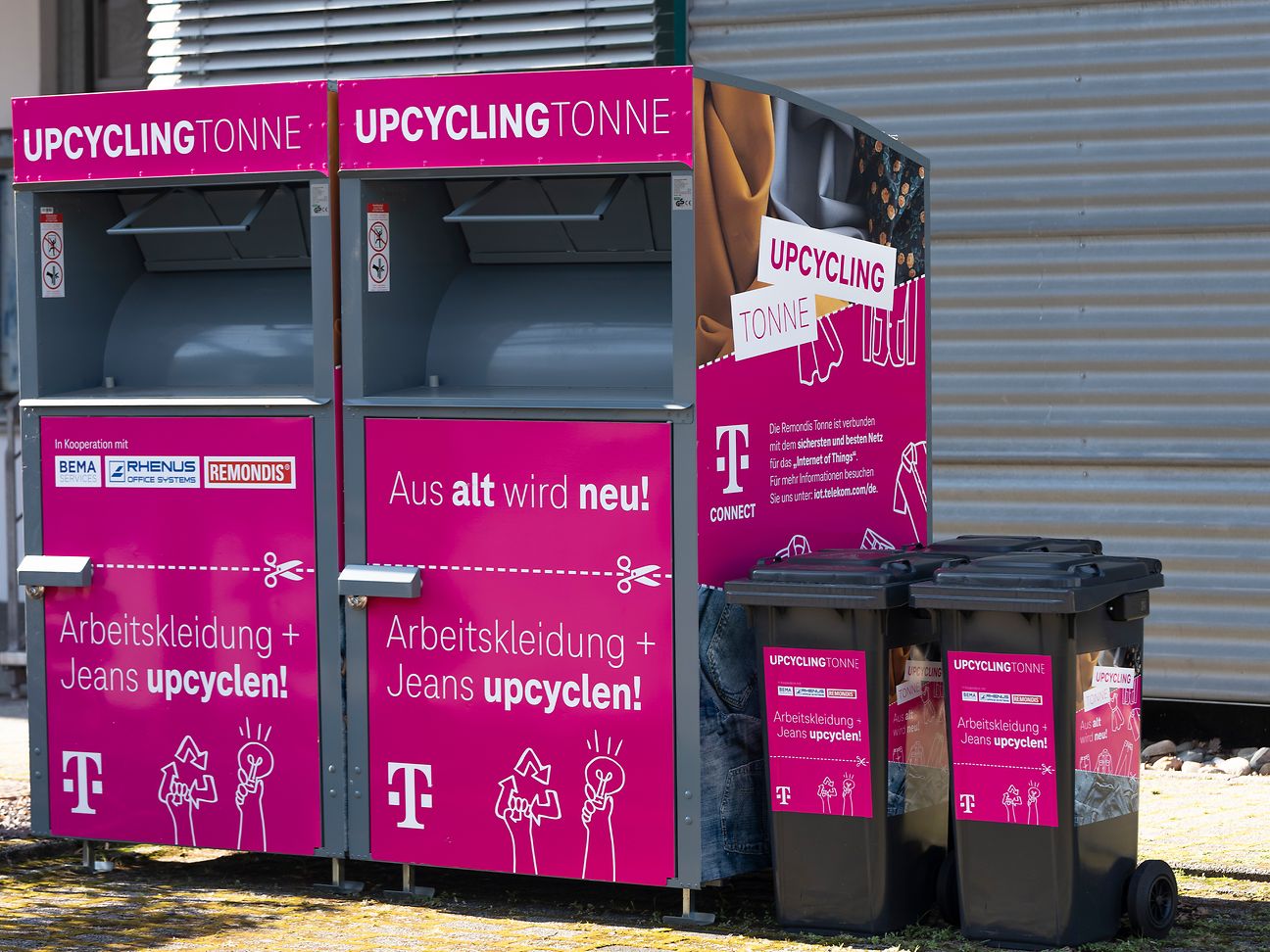

Deutsche Telekom initiates circular economy for smart textile recycling with partners
- Digitization and textile recycling for more climate protection.
- Deutsche Telekom saves 35.7 tons of CO2 emissions with 2380 kg of recycled textiles.
- Deutsche Telekom receives TUI Green IT Award for smart textile recycling.
Deutsche Telekom has built an ecosystem that covers the entire textile recycling process, including intelligent control of container fill levels, re-use and recycling. This makes Deutsche Telekom both a pioneer and a digital trailblazer in building a textile circular economy. Smart textile recycling containers help to reduce material consumption and CO2 emissions in the production of textiles. And together with partners Remondis and the Boer Group, new fibers can be produced from old workwear. The intelligent collection containers also reduce fuel consumption and CO2 emissions by optimizing transport routes.
Deutsche Telekom initiative pays off on the EU's Green Deal
As part of the European Union's Green Deal, the requirements for recycling old textiles must be met by 2025. Returning these textiles requires a separate collection system. In the past, Deutsche Telekom employees disposed of their old work clothes themselves. However, all logos had to be removed beforehand. As a result, the cut-up clothing was unusable and, according to the waste directive, had to be disposed of in the residual waste. Now Deutsche Telekom is giving workwear a second chance through intelligent textile recycling.
Deutsche Telekom equips textile collection containers with fill level sensors. These sensors measure and send the current fill level to the cloud via Deutsche Telekom's NarrowBand IoT (NB-IoT) machine and sensor network. Here, the data is processed and clearly displayed in an online portal. This way, Remondis knows when a container is full and is due to be emptied. The intelligent solution avoids unnecessary fill level checks and optimizes the collection cycles of the textile containers. The Boer Group then recycles the collected textiles into fibers in a multi-stage process.
Digital climate protection: 2380 kg of textiles recycled equals 35.7 tons less CO2
In addition to work clothes Deutsche Telekom has been collecting discarded jeans in smart textile containers since December 2021. 2380 kg of textiles have been recycled since then. This corresponds to 15.71 million liters of water saved and 35.7 tons less CO2 emissions. Currently, recycling containers for workwear are located outside Deutsche Telekom sites in Bonn, Cologne, Bochum and Berlin. Additionally, 25 smart textile garbage cans are located in the office buildings in Bonn, Cologne, Leipzig, Saarbrücken, Frankfurt and Chemnitz. The goal is to roll out recycling facilities across all Deutsche Telekom sites in Germany.
"Our intelligent recycling processes support the circular economy by returning valuable textile resources again and again. This can also be transferred to other industries, such as airlines, hotels, healthcare, trade or in the public sector," says Melanie Kubin-Hardewig, Vice President Group Corporate Responsibility at Deutsche Telekom. "Climate protection and the circular economy are central topics of our corporate responsibility strategy. We drive both internally and also enable our customers to improve their ecological footprint through our products and solutions."
For its smart textile recycling initiative Deutsche Telekom has received the TUI Green IT Award in the "Progress" category .
At least 10,000 liters of water are needed to produce one kilo of cotton. Recycled cotton, on the other hand, saves two-thirds of the water consumption and 15 kilograms of CO2. The production of a new pair of jeans emits an average of 35 kilograms of CO2.


